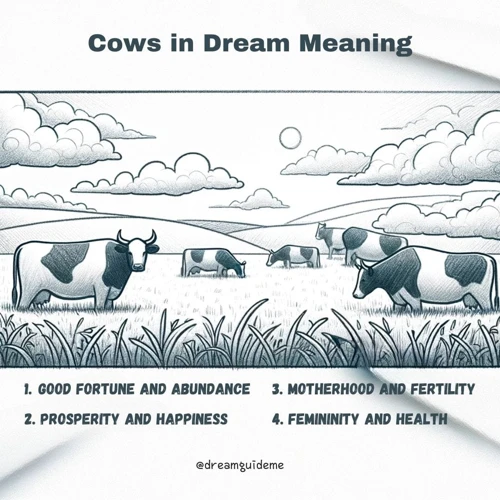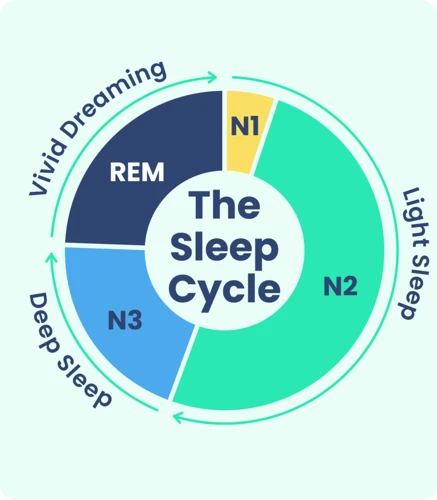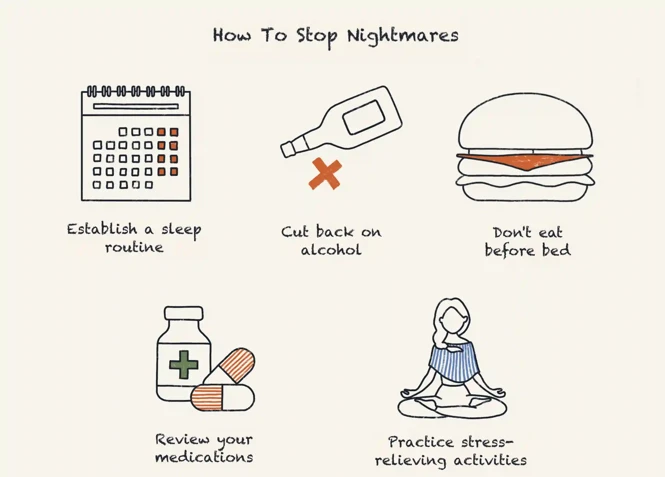Have you ever woken up from a terrifying nightmare, drenched in sweat, wondering why you had such a terrifying dream? Believe it or not, the foods you eat before bed could be to blame. Certain foods can disrupt your sleep patterns and lead to vivid and unsettling dreams. In this article, we will explore the nightmare-inducing foods that you should avoid before bedtime. Discover the impact of spicy foods, high-fat foods, caffeinated beverages, alcohol, and sugary treats on your sleep quality and dream content. We will also provide alternative options and healthier bedtime snack ideas to help you get a restful night’s sleep without the nightmares. So, if you want to understand the connection between food and nightmares and how to make better food choices, read on.
Why Food Can Cause Nightmares

When it comes to understanding why food can cause nightmares, the answer lies in the intricate relationship between our diet and sleep patterns. Firstly, certain foods can disrupt our digestive system, leading to discomfort and restlessness during the night. This physical discomfort can manifest in our dreams, creating unsettling and nightmare-inducing scenarios. Additionally, specific nutrients in our food can alter brain chemistry, affecting neurotransmitters and hormones that regulate sleep and dream cycles. For example, spicy foods containing capsaicin can increase body temperature and trigger vivid dreams. Caffeine found in beverages like coffee and energy drinks can interfere with deep REM sleep, leading to more frequent and intense nightmares. Lastly, consuming heavy meals or high-fat foods close to bedtime can cause indigestion, which can disrupt sleep and lead to disturbing dreams. To ensure a restful night’s sleep, it is important to be mindful of the foods we consume and their potential impact on our dreams. To address any concerns with nightmares, consider seeking guidance from resources like experts on coping with nightmares, especially if you or your children experience recurring distressing dreams.
1. Spicy Foods

Spicy foods, such as hot peppers and spicy sauces, can add a flavorful kick to our meals but may also contribute to nightmare-inducing sleep disturbances. The culprit behind this connection is capsaicin, the compound responsible for the heat in spicy foods. Capsaicin can raise our body temperature and increase blood flow, which can disrupt the natural cooling process that occurs during sleep. As a result, our sleep becomes fragmented, and we may experience more frequent awakenings throughout the night. This fragmented sleep can make us more prone to remember our dreams, including any nightmares we may have. Additionally, the stimulating effects of capsaicin can lead to more vivid and intense dreams. So, while you might enjoy that fiery curry or salsa during dinner, it’s a good idea to save spicy foods for earlier in the day to avoid potential nightmares and sleep disruptions.
If you still want to add flavor to your meals without the risk of nightmares, there are several alternative options you can explore. Instead of relying heavily on spicy ingredients, consider incorporating herbs and spices that are known for their calming properties, such as chamomile, lavender, or mint. These herbs not only add a pleasant taste to your dishes but can also promote relaxation and better sleep quality. Experiment with different combinations to find the flavors that suit your palate while minimizing the potential for disturbing dreams. Additionally, using techniques like marinating or slow cooking can help infuse your meals with delicious flavors without relying on spiciness. So, get creative in the kitchen and explore these alternatives to spicy foods for a peaceful night’s sleep and pleasant dreams.
1.1 How Spicy Foods Affect Your Sleep
Spicy foods have a unique effect on our sleep, which can contribute to nightmares. One of the main components responsible for the spiciness in certain foods is capsaicin. When we consume spicy dishes, capsaicin triggers receptors in our mouths, leading to a sensation of heat. This sensation can also raise our body temperature, which can potentially disrupt our sleep patterns. Our body naturally cools down as we prepare for sleep, and any significant increase in temperature can make it more challenging to fall asleep and stay asleep throughout the night. Additionally, spicy foods can cause indigestion and heartburn, especially if consumed in large quantities or close to bedtime, which can further disturb our sleep. To minimize the impact of spicy foods on sleep, it’s best to avoid consuming them close to bedtime. Instead, enjoy them earlier in the day when your body has time to digest them properly. If you or your children experience recurring nightmares or sleep disturbances, considering seeking advice from professionals who specialize in addressing concerns such as nightmares in children.
1.2 Alternative Options for Flavor
If you enjoy flavorful meals but want to avoid the potential nightmare-inducing effects of spicy foods before bed, there are plenty of alternative options for adding taste to your dishes. Instead of relying on spices like chili peppers or hot sauces, you can experiment with herbs and milder seasonings to enhance the flavor of your meals. Herbs like basil, cilantro, rosemary, and thyme can provide a burst of freshness without the intense heat. Additionally, incorporating aromatic ingredients like garlic and ginger can add depth to your dishes without the potential negative effects on sleep. Another alternative is utilizing flavorful marinades or low-sodium sauces to add a touch of tanginess or sweetness to your meals. By exploring different flavor profiles and experimenting with alternative seasonings, you can enjoy delicious and satisfying meals without the risk of disturbing your slumber. If you’re interested in learning more about managing nightmares and even harnessing the power of your dreams, you may want to explore the concept of lucid dreaming.
2. High-Fat Foods

2. High-Fat Foods:
High-fat foods, such as greasy burgers, fried snacks, and rich desserts, may satisfy our taste buds, but they can also impact our dreams in ways we may not expect. Consuming high-fat foods close to bedtime can lead to indigestion and discomfort, which in turn disrupts our sleep patterns and can contribute to nightmares. The body exerts more energy to digest these fatty foods, which can result in increased metabolism and body temperature. This physiological response can stimulate brain activity during sleep, making dreams more vivid and intense. Additionally, high-fat foods can influence the production of neurotransmitters and hormones that regulate sleep, potentially leading to disruptions in REM sleep and dream cycles. To promote more peaceful and restful nights, it is advisable to avoid consuming high-fat foods at least two to three hours before bed, allowing your body ample time to digest and minimize the risk of nightmares.
To help you make healthier bedtime snack choices, here are some low-fat alternatives that can satisfy your cravings without causing sleep disturbances:
1. Greek yogurt with berries: Enjoy a cup of low-fat Greek yogurt topped with fresh berries. This option is not only low in fat but also provides protein and antioxidants that can promote better sleep.
2. Air-popped popcorn: Swap out greasy chips for a bowl of air-popped popcorn. It is a light and low-fat snack that can satisfy your crunch cravings.
3. Sliced apples with almond butter: Slice up some crisp apples and pair them with a tablespoon of almond butter. This combination provides a good balance of fiber, healthy fats, and natural sweetness.
4. Vegetable sticks with hummus: Crunchy carrot sticks, celery, and bell pepper strips paired with a serving of hummus can be a nutritious and low-fat snack option.
By opting for these healthier alternatives, you can still enjoy a bedtime snack without worrying about the potential negative impact on your dreams.
2.1 Impact of High-Fat Foods on Your Dreams
The impact of high-fat foods on your dreams can be significant. When you consume foods that are high in fat before bed, your body has to work harder to digest them. This can lead to discomfort, indigestion, and disrupted sleep. As a result, your sleep cycles may be affected, including REM sleep, which is the stage associated with intense dreaming. The disruption of REM sleep can cause an increase in vivid and bizarre dreams, including nightmares. Research has suggested that high-fat foods can also affect brain chemicals and neurotransmitters, further influencing dream content. Additionally, high-fat foods may increase the likelihood of experiencing sleep disorders such as sleep apnea, which can contribute to the occurrence of disturbing dreams. To minimize the impact of high-fat foods on your dreams, it is advisable to opt for lighter, easily digestible snacks before bed. This can include foods such as yogurt, fruits, or whole grains. By making healthier choices, you can promote better sleep quality and reduce the risk of unsettling dreams. Remember, a restful night’s sleep starts with mindful eating habits.
2.2 Healthy Bedtime Snack Ideas
When it comes to choosing healthy bedtime snacks, there are plenty of options that can satisfy your cravings without disrupting your sleep or causing nightmares. Here are some healthy bedtime snack ideas to consider:
1. Warm Milk: Sip on a warm glass of milk before bed. Milk contains tryptophan, an amino acid that promotes relaxation and can help you fall asleep faster.
2. Banana: Enjoy a ripe banana as a bedtime snack. Bananas are rich in magnesium and potassium, which can help relax your muscles and promote a peaceful sleep.
3. Greek Yogurt with Berries: Opt for a serving of Greek yogurt topped with fresh berries. The combination of protein and antioxidants in this snack can keep you feeling satisfied while providing a boost of nutrition.
4. Whole Grain Crackers with Nut Butter: Choose whole grain crackers paired with a spread of almond butter or peanut butter. Whole grains provide complex carbohydrates, while nut butter offers protein for sustained energy throughout the night.
5. Herbal Tea: Swap out caffeinated beverages for calming herbal teas like chamomile or lavender. These soothing teas can help you relax and unwind before bed.
Remember, the key is to choose snacks that are light, easily digestible, and contain a balanced combination of nutrients. By opting for these healthy bedtime snack ideas, you can satisfy your hunger and promote a restful night’s sleep without the risk of nightmare-inducing foods.
3. Caffeinated Beverages

3. Caffeinated Beverages
Caffeine, a stimulant found in beverages like coffee, tea, energy drinks, and soda, can have a significant impact on our sleep quality and dream content. Consuming caffeinated beverages close to bedtime can disrupt our ability to fall asleep and can lead to more frequent awakening during the night. This interference with our sleep patterns can increase the likelihood of experiencing nightmares.
Caffeine affects our sleep by blocking adenosine receptors in the brain, which would otherwise promote drowsiness and sleep. As a result, it can take longer to fall asleep and the sleep achieved may not be as restful or deep. This disruption to our sleep architecture can contribute to an increase in nightmares.
To minimize the potential for nightmares, it is recommended to avoid consuming caffeinated beverages in the late afternoon and evening, especially within a few hours of bedtime. It is equally important to be mindful of hidden sources of caffeine, such as chocolate or certain medications.
To replace caffeinated beverages before bed, consider healthier bedtime drink alternatives, such as herbal teas like chamomile or lavender, which have calming properties that promote relaxation and better sleep. Alternatively, warm milk or decaffeinated herbal teas can offer a soothing and caffeine-free option. By making these simple substitutions, you can enjoy a more peaceful night’s sleep without the risk of caffeine-induced nightmares.
3.1 The Link Between Caffeine and Nightmares
When it comes to the link between caffeine and nightmares, it’s essential to understand how caffeine affects our sleep cycles. Caffeine is a stimulant that blocks adenosine receptors in the brain, keeping us awake and alert. Consuming caffeine too close to bedtime can interfere with our ability to fall asleep and enter the deep REM stage of sleep, where most dreaming occurs. This disruption in the sleep cycle can lead to an increased likelihood of nightmares. Studies have shown that caffeine can intensify the emotional content of dreams, making them more vivid and disturbing. Additionally, caffeine can increase anxiety and contribute to sleep disturbances, further exacerbating the potential for nightmares. To avoid these sleep disruptions, it is recommended to limit caffeine consumption, especially in the hours leading up to bedtime. Instead of reaching for that late-night cup of coffee, opt for alternative strategies to conquer nightmares and choose bedtime drink alternatives like herbal tea or warm milk, which can promote relaxation and peaceful sleep.
3.2 Bedtime Drink Alternatives
If you’re looking for bedtime drink alternatives that won’t sabotage your sleep with nightmares, there are plenty of options to choose from. One popular choice is herbal tea, which can have calming effects on both the body and mind. Chamomile tea, in particular, is well-known for its relaxation properties, making it a great choice to sip on before bed. Another option is warm milk, which contains tryptophan, an amino acid that promotes the production of serotonin and melatonin, both of which are important for regulating sleep. A glass of tart cherry juice may also be beneficial, as it naturally contains melatonin, helping to signal to your body that it’s time to sleep. For those who enjoy a warm and soothing drink that’s caffeine-free, a cup of decaffeinated herbal tea, such as lavender or peppermint, can be a great choice. Remember, the key is to avoid any drinks that contain caffeine, alcohol, or excessive sugar, as these can disrupt your sleep patterns and increase the likelihood of nightmares. Opting for one of these bedtime drink alternatives will help create a soothing and calming environment for a restful night’s sleep.
4. Alcohol

Alcohol, although commonly consumed to unwind and relax, can have a negative impact on the quality of our sleep and potentially lead to nightmares. Firstly, alcohol is a depressant that can interfere with the normal sleep cycle, preventing us from reaching the deep, restorative stages of sleep. This can result in fragmented and disturbed sleep, making us more prone to experiencing nightmares. Alcohol also affects the production of melatonin, a hormone that regulates sleep-wake cycles. Disrupted melatonin levels can lead to more vivid and intense dreams, including nightmares. Alcohol can act as a diuretic, increasing the frequency of nighttime awakenings to use the bathroom, further interrupting our sleep patterns. While a glass of wine or a beer may initially make you feel drowsy, it’s important to recognize that consuming alcohol before bed can have detrimental effects on both sleep quality and dream content. To promote better sleep and avoid nightmares, it’s advisable to limit alcohol consumption, especially in the hours leading up to bedtime.
4.1 How Alcohol Affects Your Sleep Quality
Alcohol may be a common go-to for relaxation and winding down before bed, but it can have a detrimental effect on the quality of your sleep. While alcohol might make you drowsy and help you fall asleep faster initially, it disrupts the natural sleep cycle, leading to poor sleep quality and an increased likelihood of nightmares. Here’s how alcohol affects your sleep:
1. Fragmented Sleep: Alcohol acts as a sedative, making you feel sleepy and aiding in the initial stages of falling asleep. However, as the body metabolizes the alcohol, it can cause disruptions in your sleep patterns. You may experience more awakenings throughout the night, resulting in fragmented sleep.
2. REM Sleep Suppression: Rapid Eye Movement (REM) sleep is a crucial stage of the sleep cycle associated with dreaming and memory consolidation. Alcohol consumption suppresses REM sleep, leading to a lack of dream sleep during the first half of the night. When REM rebound occurs later in the night, it can result in intense and vivid dreams, potentially turning into nightmares.
3. Dehydration: Alcohol is dehydrating, and its consumption before bed can lead to increased urine production and frequent bathroom trips during the night. This disruption to your sleep can contribute to irritability and restlessness, potentially influencing the content of your dreams.
4. Aggravates Sleep Disorders: For individuals with sleep disorders such as sleep apnea or insomnia, alcohol exacerbates these conditions. It can worsen breathing problems and make it more difficult to fall or stay asleep, leading to potential sleep disturbances and nightmares.
To improve the quality of your sleep and minimize the risk of nightmares, it is best to avoid consuming alcohol close to bedtime. Instead, opt for healthier sleep solutions and relaxation techniques to ensure a more peaceful and restorative night’s sleep.
4.2 Sober Sleep Solutions
When it comes to finding sober sleep solutions to combat the disruptive effects of alcohol on your sleep quality and reduce the likelihood of nightmares, several strategies can help. First and foremost, it’s essential to prioritize a consistent sleep schedule. Going to bed and waking up at the same time every day regulates your body’s internal clock and promotes healthy sleep patterns. Creating a relaxing bedtime routine, such as taking a warm bath or reading a book, can also signal to your body that it’s time to wind down and prepare for sleep. Additionally, practicing relaxation techniques like deep breathing exercises or meditation can help alleviate any residual stress or anxiety that may be affecting your sleep. Turning your bedroom into a conducive sleep environment by keeping it dark, cool, and quiet can also promote better rest. Avoiding stimulating activities, such as using electronic devices or watching intense movies, close to bedtime is crucial as well. Instead, opt for calming activities like listening to soothing music or practicing gentle stretches. Lastly, consider trying natural sleep aids like herbal teas (such as chamomile or valerian root) or relaxation techniques like progressive muscle relaxation. By incorporating these sober sleep solutions into your routine, you can improve the quality of your sleep and wake up feeling refreshed, without the nightmares caused by alcohol.
5. Sugary Treats
Sugary treats, while delightful to our taste buds, can have a negative impact on our dream experiences. The consumption of sugary foods before bed can cause spikes in blood sugar levels, leading to fluctuations in energy levels throughout the night. This rollercoaster effect can disrupt the normal sleep cycle and increase the likelihood of vivid and intense dreams. Additionally, sugary treats can contribute to indigestion and heartburn, which can further disturb our sleep and result in unsettling dreams. Research has also suggested a potential link between high sugar intake and increased dream disturbances, such as nightmares. The exact mechanism behind this connection is not yet fully understood, but it is believed that the release of insulin triggered by the sugary foods could influence neurotransmitters responsible for dream regulation. To satisfy your sweet tooth without jeopardizing your dreams, consider healthier alternatives such as fresh fruits or dark chocolate, which contain natural sugars in moderation. These options provide a more balanced release of energy and are less likely to disrupt your sleep or invite disturbing dreams. Taking care of your diet and making mindful choices will not only benefit your overall health but also contribute to a more peaceful and pleasant sleep.
5.1 Impact of Sugar on Dream Disturbances
The impact of sugar on dream disturbances is a fascinating area to explore. Consuming sugary treats before bed can have a negative impact on the quality of your sleep and lead to disruptive dreams. When we consume foods high in sugar, our blood sugar levels spike, causing a surge of energy that can interfere with falling asleep and entering into deep, restorative sleep stages. This can result in fragmented sleep and increased brain activity during the night, leading to more vivid and intense dreams. The rapid rise and subsequent drop in blood sugar levels can trigger the release of stress hormones, which can contribute to dream disturbances. These unsettling dreams may involve themes of anxiety, restlessness, or even nightmares. To minimize the impact of sugar on your dreams, it is advisable to limit sugary treats, especially close to bedtime. Instead, opt for healthier sweet tooth satisfiers like fruits or yogurt, which provide natural sugars along with essential nutrients to support a better night’s sleep. By making mindful choices and balancing your sugar intake, you can improve your sleep quality and reduce the risk of experiencing disruptive dream disturbances.
5.2 Healthier Sweet Tooth Satisfiers
If you have a sweet tooth but want to avoid the negative impact of sugary treats on your dreams, there are healthier alternatives that can still satisfy your cravings. Here are some options to consider:
1. Dark chocolate: Indulge in a small piece of dark chocolate, which not only provides a rich, satisfying taste but also contains antioxidants and less sugar than milk chocolate.
2. Fruit: Enjoy nature’s sweetness by snacking on fresh fruits like berries, oranges, or sliced apples. These fruits are not only delicious but also packed with essential vitamins and fiber.
3. Yogurt with honey: Opt for a low-sugar or Greek yogurt and add a drizzle of honey for a sweet and creamy treat. This combination provides protein and probiotics, which are beneficial for digestion and overall health.
4. Smoothies: Blend together your favorite fruits, unsweetened almond milk, and a teaspoon of honey for a refreshing and naturally sweet beverage. You can also add a handful of spinach or kale for an extra nutritional boost.
5. Homemade energy balls: Prepare a batch of energy balls using nutritious ingredients like nuts, dates, cocoa powder, and shredded coconut. These bite-sized treats offer a satisfying sweetness and are bursting with energy-boosting nutrients.
By choosing these healthier sweet tooth satisfiers, you can enjoy a guilt-free treat before bed without the risk of disturbing your dreams with excessive sugar content. Remember to practice portion control and listen to your body’s cues for satiety to ensure a balanced and restful night’s sleep.
Conclusion
In conclusion, the foods we consume before bed can have a significant impact on our sleep quality and dream content. Spicy foods, high-fat foods, caffeinated beverages, alcohol, and sugary treats have all been associated with disturbing nightmares. These foods can disrupt our digestive system, alter brain chemistry, and interfere with deep REM sleep, leading to vivid and unsettling dreams. However, there are alternative options and healthier bedtime snack ideas that can help promote a more restful night’s sleep. Opting for milder flavors, choosing lighter and nourishing snacks, avoiding caffeine and alcohol close to bedtime, and reducing sugar intake can all contribute to a better night’s sleep without the nightmare-inducing side effects. By being mindful of our food choices before bed, we can set ourselves up for a peaceful and refreshing sleep experience, free from the terrors of nightmares. Remember, a restful night’s sleep is essential for overall well-being and should not be compromised by the wrong food choices.
Frequently Asked Questions
1. Can eating spicy foods before bed cause nightmares?
Yes, consuming spicy foods before bed can potentially trigger nightmares. The presence of capsaicin, a compound found in spicy foods, can increase body temperature and stimulate brain activity, leading to more vivid and disturbing dreams.
2. Is it true that high-fat foods can disrupt sleep and result in nightmares?
Yes, indulging in high-fat foods close to bedtime can interfere with the digestion process and cause discomfort. This discomfort can disrupt sleep and contribute to the occurrence of nightmares.
3. Does caffeine intake contribute to having nightmares?
Indeed, consuming caffeinated beverages such as coffee, tea, or energy drinks can interfere with the quality of sleep. Caffeine stimulates the central nervous system and can disrupt the normal sleep cycle, increasing the likelihood of experiencing nightmares.
4. Can drinking alcohol before bed lead to nightmares?
Yes, alcohol disrupts the natural sleep cycle by suppressing REM sleep and preventing the brain from entering deep, restorative sleep. This disruption can result in more frequent awakenings during the night and can contribute to nightmares.
5. Does sugar intake affect dream disturbances?
Absolutely, consuming sugary treats close to bedtime can cause a spike in blood sugar levels, leading to fluctuations in energy and potentially disturbing dreams. It’s best to limit sugar intake before bed to promote a more peaceful sleep.
6. Are there alternative options for adding flavor to food without consuming spicy ingredients?
Yes, there are numerous alternatives to spices that can enhance the flavor of your meals without the potential for disturbing dreams. For example, try using herbs like basil, oregano, or rosemary, or experiment with milder seasoning options like garlic or lemon juice.
7. What are some healthier bedtime snack ideas to promote better sleep?
Opt for light and easily digestible snacks before bed. Some examples include a small bowl of whole-grain cereal with milk, a banana, a handful of nuts, or a cup of herbal tea like chamomile, which is known for its calming properties.
8. How can I ensure a more peaceful night’s sleep without alcohol?
Several mindful sleep solutions can help you achieve a restful night without relying on alcohol. Establish a relaxing bedtime routine, create a soothing sleep environment, practice relaxation techniques like deep breathing or yoga, and limit electronic device usage before bed.
9. Are there any natural remedies to soothe nightmares in children?
Yes, some natural remedies can help alleviate nightmares in children. Establishing a consistent bedtime routine, providing a comforting environment, using a nightlight, and engaging in calming activities like reading or listening to gentle music can all contribute to a more peaceful sleep experience.
10. Can lucid dreaming techniques help conquer nightmares?
Absolutely! Lucid dreaming techniques involve becoming aware that you are dreaming and exerting some control over the dream. With practice, individuals can use lucid dreaming to alter the dream’s content and reduce the occurrence of nightmares.








